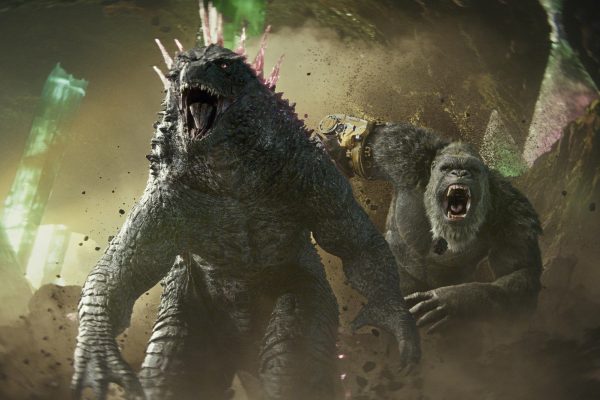Tim Burton’s history reveals dynamics
February 17, 2018
On Jan. 17, 2008, The Northern Star published an opinion piece by a writer named Keith Cameron arguing Tim Burton is an overrated and repetitive filmmaker. A decade later, it’s time to review Cameron’s piece and reevaluate Burton’s place in history.
Cameron’s primary argument is that Burton’s work revolves around a common theme, social outcasts finding their way in society, and this recurring theme somehow lessens the impact of his tales.
The article contains as much intellectual horsepower as a baby stroller, but Cameron is right that ostracized figures finding their place in the world is a definite theme of 1990’s “Edward Scissorhands” and 1994’s “Ed Wood.” It’s impossible to refute the animosity both title characters face from people who don’t understand them.
However, social detachment is far from Burton’s only concern. Jack Skellington from 1993’s “The Nightmare Before Christmas” is far from an outcast; he’s the leader of Halloween Town after all. Instead of being a story about loneliness, “Nightmare Before Christmas” is about a guy who is unsatisfied with his job; it’s about finding beauty in the holidays.
His lesser-known projects reveal further interests. In 1996, he released “Mars Attacks,” his love-letter to cheesy ’50s science fiction. The film is lightweight and silly, extremely opposed to the grim, gothic caricature of Burton which typically comes to mind.
Even if Burton’s work was as repetitive as Cameron describes, it wouldn’t matter. In his 1999 book “On Writing,” Stephen King says most artists deal with only a handful of themes.
“I have many interests, but only a few that are deep enough to power novels,” he said. “These interests include the question of why, if there is a God, such terrible things happen; the thin line between reality and fantasy; and most of all, the terrible attraction violence sometimes has for fundamentally good people.”
For King and many horror authors, there’s also society’s irrational fear of the unknown. Shakespeare himself reused themes, composing multiple tragedies about how power breeds mistrust and corruption.
The comparison extends to Hollywood. Martin Scorsese’s most famous films like 1990’s “Goodfellas” and 2013’s “The Wolf of Wall Street” deal with the way society fetishizes morally repugnant behavior. It’s unreasonable for Cameron to criticize Burton for having consistent themes when any individual human being only has a limited number of unique interests. It’s built into the species.
Cameron’s article serves an important purpose though; audiences should always be evaluating their favorite filmmakers and the established classics.
The fact is Burton’s filmography is spotty. For every “Nightmare Before Christmas,” which Burton didn’t even direct, only produced, there’s an awkward mess like 2001’s “Planet of the Apes” reboot.
For every magical story filled with imaginative wonderlust like 1996’s “James and the Giant Peach,” which he again only produced, there’s an incomprehensible visual disaster like 2010’s “Alice in Wonderland,” a film drowning in computer-generated imagery, so much so it resembles a peppermint-coloured puddle of mud more than a film.
Burton has made some classics, and he has an eye for visuals; the miles of bland suburbs in “Edward Scissorhands,” the rich black-and-white colors of “Ed Wood” and the meticulous gothic animation of “Nightmare before Christmas” come to mind. His legacy shouldn’t give him a free pass or excuse the fact he hasn’t made anything that’s touched his ’90s peak.
He is a filmmaker who deserves attention but not one above criticism or scrutiny. He needs to fight for every scrap of adoration he gets.













